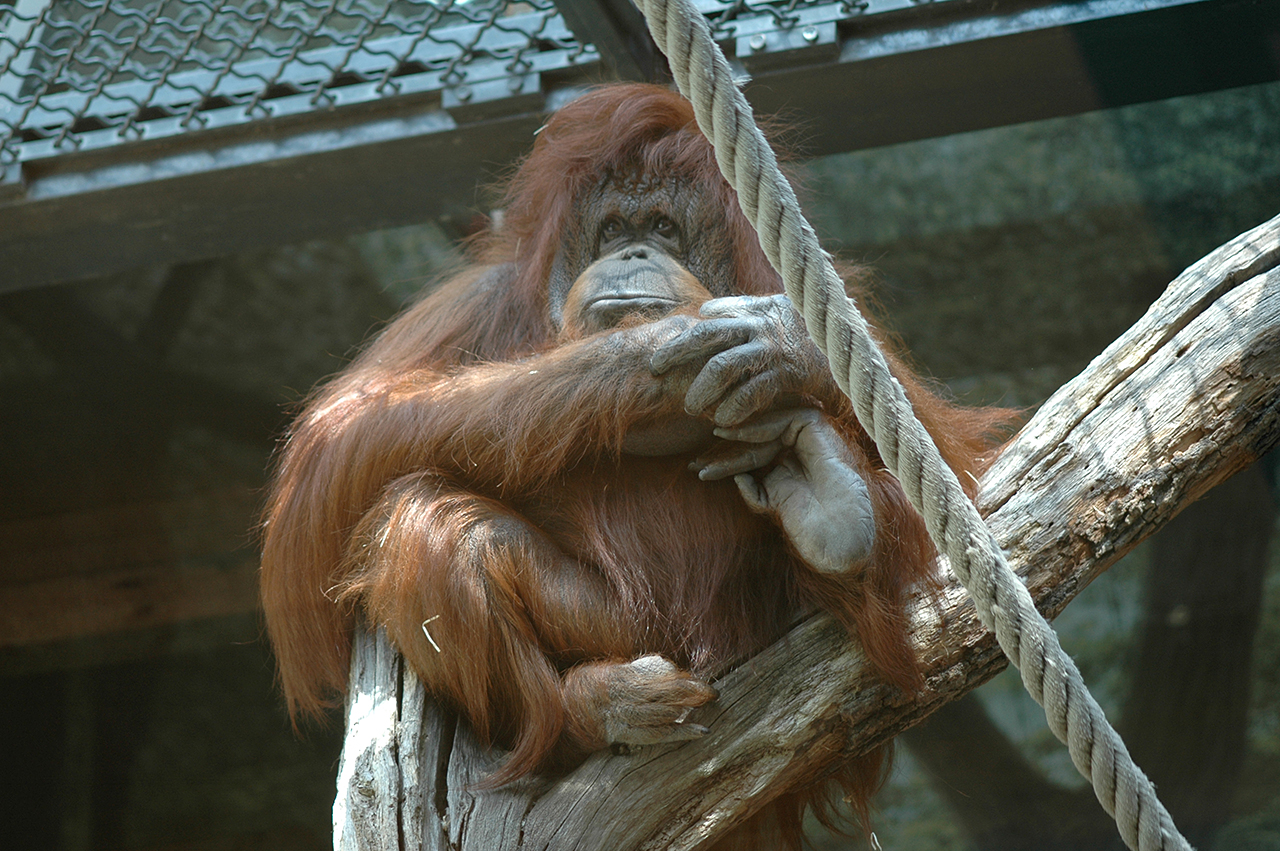A Meditation on Captivity, Featuring an Orangutan
A child’s voice whispers “ Nénette! ” and immediately we are in the patient and curious world of the French filmmaker Nicolas Philibert. Best known in the United States for To Be and to Have – his captivating 2002 portrait of a rural schoolteacher – Mr. Philibert has switched his gaze to a primate with rather less agency: a 40-year-old female orangutan in the zoo at the Jardin des Plantes in Paris.
That gaze never wavers. Nénette is a film devoid of human faces, the camera merging with the more than half-million visitors who traipse past the orangutan’s cage every year. We hear their voices, these mothers and children and couples, their words revealing the complexity of our relationship to caged wildlife. Is Nénette depressed, they wonder, or just lonely?
Quiet and watchful, the object of their fascination leans on her gnarled knuckles, straw clinging to her mat of ginger hair. She arrived from Borneo in 1972, has survived three mates and produced four offspring. Once she was lively (“The bane of the place,” says an older zookeeper); now she looks passive and glum, quieted by age and arthritis. Or something else.
Beautiful in its minimalism, Nénette is no antizoo rant but a melancholy meditation on captivity. Nénette may be better off than her endangered kin, but as we watch her delicately pour tea into the yogurt container that holds her contraceptive pill (she lives with her son, and the zoo is keen to avoid procreative embarrassment), that knowledge gives us small comfort.
Yet Nénette is loved, with some people stopping by every day. A keeper likens them to those visiting a relative in prison — which, when you come to think of it, is exactly what they are doing.
